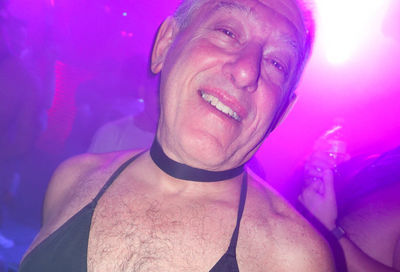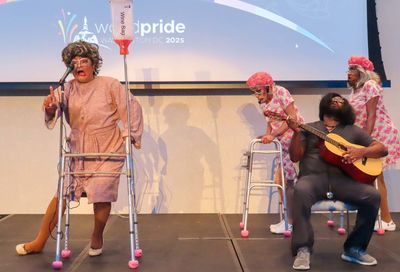Courting Justice
The legal cases that shaped the past decade and will shape the next
From excluding an ”avowed homosexual” from the Boy Scouts of America to striking down ”a law that effectively excludes gay and lesbian people from the institution of civil marriage,” courts across the nation have handed down decisions in the past decade that shaped political races since 2000 but are likely to have even greater impact over the next decade.
In April of 2000, the U.S. Supreme Court heard oral arguments in Boy Scouts of America v. Dale, a case challenging whether New Jersey’s public accommodations law could prevent the Boy Scouts from kicking out James Dale, a volunteer assistant scoutmaster, because he was gay. Dale lost in a closely divided decision that, less than 10 years later, already shows the passage of time.
It was none less than Chief Justice William Rehnquist who wrote of the fact that Dale was an ”avowed homosexual.” Justice John Paul Stevens, dissenting in the court’s opinion, had to remind the chief justice that ”every state law prohibiting discrimination is designed to replace prejudice with principle.”
And so began a decade where case after case proved that out. Though there have been unsuccessful legal efforts in this decade, it is several successful efforts that stand out as cases that will continue to matter in the years ahead. The first was the rare case when the U.S. Supreme Court revisited a matter that it had decided previously.
In 1986, the Supreme Court considered the case of Bowers v. Hardwick, challenging Georgia’s sodomy law. The Court found the law to be constitutional, and Chief Justice Warren Burger noted that to decide otherwise ”would be to cast aside millennia of moral teaching.”
In the case of Lawrence v. Texas in 2003, however, the court cast aside the Bowers opinion when it struck down Texas’s ”Homosexual Conduct” law as unconstitutional. Justice Anthony Kennedy wrote a broad opinion that has been praised by the left and pilloried by the right, holding that the case was about ”liberty of the person both in its spatial and more transcendent dimensions.” The spatial dimension being when ”sexuality finds overt expression in intimate conduct,” apparently, and the more transcendent dimension being when that conduct is just ”one element in a personal bond that is more enduring.”
From the moment the Lawrence opinion was announced, the focus in the nation turned to those more enduring bonds of matrimony. Later that year, the 4-3 opinion of the court in Goodridge v. Department of Public Health paved the way to marriage equality in Massachusetts. The next year, however, brought the many marriage-amendment votes across the country, and progress stalled with close court decisions and unprepared ballot fights.
Then, of course, there was 2008, and the joy brought by the Marriage Cases in California, followed all too quickly by the unexpected loss of marriage equality with Proposition 8.
As the decade drew to a close, however, the unanimous decision of the Iowa Supreme Court in Varnum v. Brien started off this final, frenetic year of marriage equality. There, for the first time in this nation’s history, a state’s highest court spoke strongly and with one voice in support of marriage equality.
With a vigorous defense of the role of courts in defending against discrimination, a dismissal of ”tradition” as a defense for excluding same-sex couples from marriage and a straight-on addressing of religious opposition to civil-marriage equality, the Varnum opinion should be a model in the years ahead as other courts – including the U.S. Supreme Court – grapple with all manner of questions relating to LGBT inequality.
Support Metro Weekly’s Journalism
These are challenging times for news organizations. And yet it’s crucial we stay active and provide vital resources and information to both our local readers and the world. So won’t you please take a moment and consider supporting Metro Weekly with a membership? For as little as $5 a month, you can help ensure Metro Weekly magazine and MetroWeekly.com remain free, viable resources as we provide the best, most diverse, culturally-resonant LGBTQ coverage in both the D.C. region and around the world. Memberships come with exclusive perks and discounts, your own personal digital delivery of each week’s magazine (and an archive), access to our Member's Lounge when it launches this fall, and exclusive members-only items like Metro Weekly Membership Mugs and Tote Bags! Check out all our membership levels here and please join us today!


















